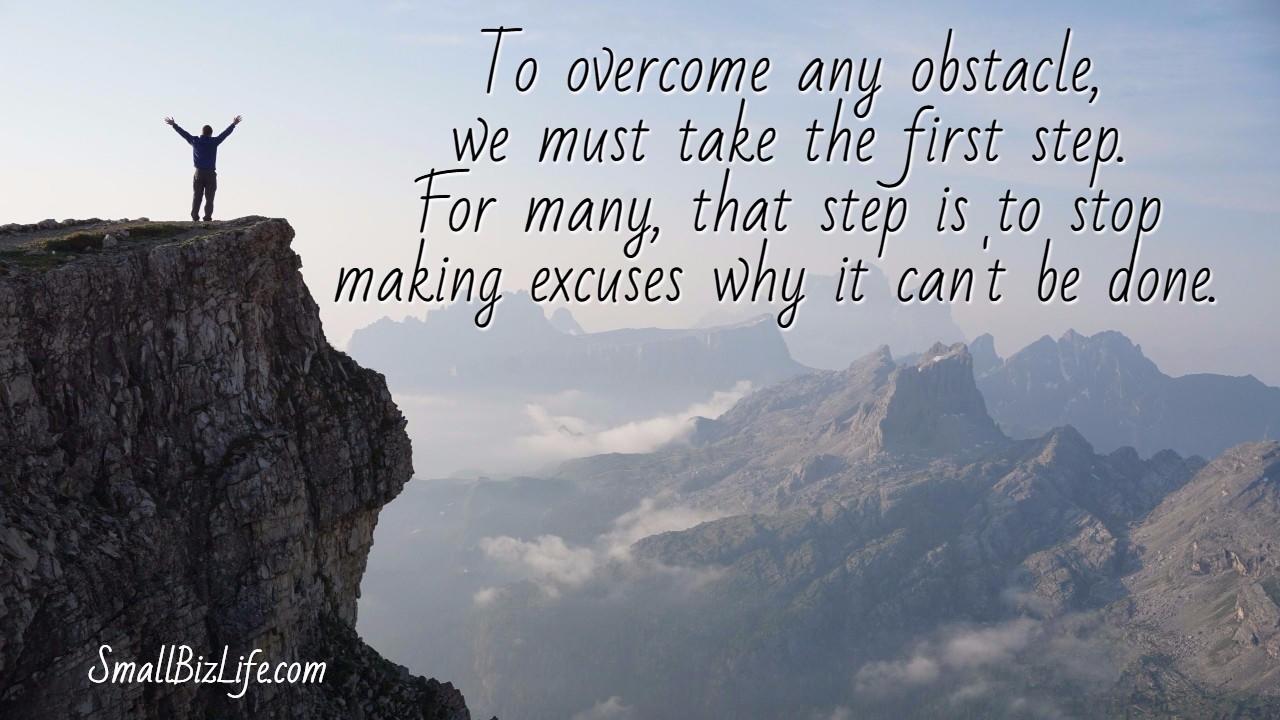Episode 49 - Stop the excuses

We all have a lot of hurdles that keep us from growing our businesses. In this episode, we address a number of those hurdles including time, money, skills, and fear.
Time
As small business owners, this is often the most cited reason for not being able to grow our businesses. We have found through monitoring our time, we waste a lot. Kristin has beaten over 2,500 levels of candy games. Jeff has gotten hundreds of character levels in games like Skyrim and Fallout 4. We can't even count how many hours we waste on social media. Do we all need down time? Absolutely! However, we often feel like we need more downtime because we aren't being intentional with it. Creating a time budget will allow you to be intentional with your time. It is based on the same theory as the zero based budget for your money. When you become more intentional with your time, you will get more done and enjoy your downtime more.
Money
It often feels like you need a huge amount of money to start a business. Unless you are opening a brick-and-mortar business, this is usually not the case. Most business can be started for less money than you could raise if you had a tag sale next weekend. It may be tempting to purchase all the new shiny things, but to get started, you only need a few things:
- You need to know what you are going to sell and how much you are going to charge.
- You need to register your business with your local government.
- You need a basic website, an email list, and a few social media channels.
- You need to get out there and network.
Yes, there are a lot of other tools you could purchase to get a jump start, but with those basic things you can get started. As you start generating revenue, you can invest in additional tools. Knowing what tools will advance your business the most before money comes in helps you from overspending.
Skills
As a small business owner, you wear a lot of hats. We often think we need to know everything before we start. As we started putting together this webinar series and the course we are launching this fall, we made a list of the things we would need to have in place and started working on them one-at-a-time. When we hit a road block, we used free resources online to get us to the next step. Rather than trying to learn everything before we started, we learned as we went. Don't get stuck in the trap that you need to know everything before you begin. Learn as you go, experiment, and try new things.
Fear
We discuss fear often because it is something that shuts down a lot of small businesses before they even begin. It can be overwhelming! We have found that if we break huge tasks into smaller tasks, a project can become less overwhelming. Those small wins can help motivate you to push forward. For example, instead of having a weekly task set up for the podcast, our task list looks more like this:
- Brainstorm topic for the show
- Create outline for the show
- Do any research needed for the show
- Discuss show flow
- Record the show
- Edit the show
- Tag the MP3 file
- Upload the file to Libsyn
- Create a main graphic for the show notes
- Write show notes
- Add links, tags, and graphic to show notes
- Publish episode and create initial share on social media
This may look like a lot of steps but some of them are very short tasks, like creating the graphics or tagging the MP3 file. By breaking the show up into 12 steps, we have a detailed list of what we need to do to create a show each week. Jeff shared an interesting analogy from the horror writing. Things are scary when they are unknown. Think of Steven King's It. We know very little about the monster in this story, which adds to the horror element. Fear works the same way within all of us. The more we define a project, budget our time, create a list of tools we need, and learn skills as we go the less scary it is.
Listen to the show on iTunes, Stitcher, YouTube, Google Play Music, iHeart Radio, or with the player below
FREE DOWNLOAD: The system to guide your leads to sales
(The 1st question has saved us hundreds of hours of wasted time)
We all have wasted time trying to sell to people before they are ready. So we came up with this simple system to guide our leads to sales and have included 21 questions you need to answer to make sure they are ready to make the sale.
